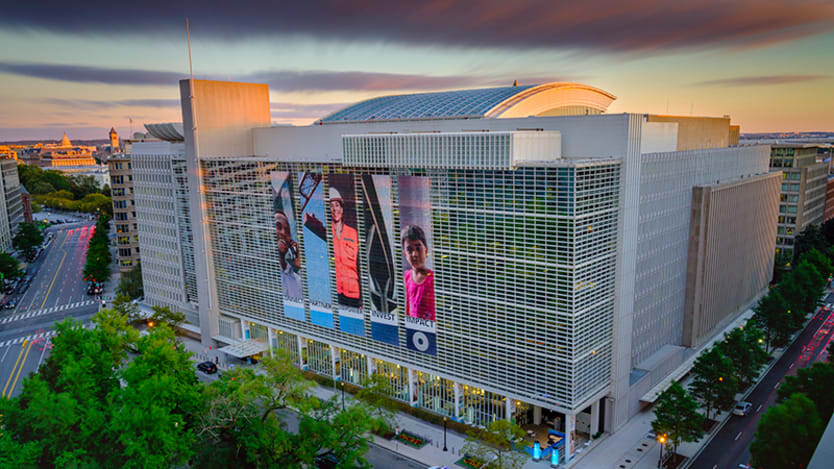
LONDON — The World Bank’s board of executive directors is failing to live up to its own standards on gender equality, which is preventing the multilateral development bank from hitting international diversity and inclusion targets, staff say.
Despite setting tough gender equality targets for the World Bank’s staff, only 5 of the board’s 25 executive directors are women — representing the governments of Thailand, Uganda, Nigeria, the United States, and India.
The lack of gender diversity on the board has been the norm for the past 10 years, and extends across the executive team: Only 5 of the bank’s 23 alternative executive directors, who act for the director when they are away, are women, according to a 2018 board report.
For Pro subscribers: A holistic approach to closing the gender pay gap
Rosanna Duncan, chief diversity officer at Palladium, discusses the organization's 'holistic' approach to tackling the gender pay gap.
The power to nominate executive directors lies with the bank’s governors, usually ministers of finance from shareholder countries. While the governors have said that they are in favor of gender diversity at the board level, its makeup continues to be male-dominated.
In contrast, the bank itself has made strong progress on gender and inclusion in recent years. Former President Jim Kim became a HeForShe champion and vowed to close the gender gap within senior management by 2020. The bank’s latest diversity and inclusion figures, seen by Devex, show that women accounted for 49% of senior management in 2019, although it still struggles to hire more women into technical and professional roles.
“Apart from the uncomfortable optics, this imbalance genuinely compromises our ability to achieve Level 3 EDGE certification.”
— Daniel Sellen, chair, World Bank Staff AssociationThe bank was also the first international finance institution to receive EDGE gender certification — a global marker of workforce gender equality — and has vowed to reach level 2 by 2020. It is one of only a handful of public institutions to be certified to date but is behind the Asian Development Bank and UNICEF, which have both already attained level 2 certification.
However, even if the bank reaches level 2, its chances of progressing to level 3 look slim while the board continues to be “one of the least diverse places in the World Bank,” according to Daniel Sellen, chair of the World Bank Staff Association, which has been raising the issue for years. The top EDGE certification requires women to hold at least 30% of board seats.
“Apart from the uncomfortable optics, this imbalance genuinely compromises our ability to achieve Level 3 EDGE certification,” Sellen wrote in a statement, seen by Devex, that was shared with the board and the bank’s president in September. In the statement, Sellen “respectfully ask[s] the Board what they plan to do about it.”
Executive directors agree there is a problem and have been looking for solutions. In 2018, a working group of executive directors submitted a report to the governors, which recommended that they “recognize the importance of gender diversity when considering candidates for the position of Executive Director,” and try to grow the pipeline of female candidates.
“Everyone wants to see gender diversity on the board and the strength that would bring, but the issue for me is how would you make it happen? The governors are the people who nominate … it’s a sovereign decision of member countries … [and] don’t think you can tell governors that you want the next nominee to be a female,” one executive director, who asked to remain anonymous, told Devex.
Furthermore, many countries that are outwardly strong advocates for gender equality currently have men in the role — such as the Netherlands, Germany, Australia, and the United Kingdom — the executive director observed, saying they are not “walking the talk.”
Another executive director, who also asked not to be named, said that it will be difficult to increase numbers until the board’s work schedule changes to make it easier for women to take the role. Directors currently start two-year terms in Washington D.C. in November, which means moving after the beginning of the school year and can be difficult for those with children, they said.
The 12-strong working group is still meeting — although it recently lost a vocal champion in Christine Hogan, former executive director for Canada, who left earlier this year. Anne Kabagambe, executive director for one of the African constituencies, now co-chairs the working group alongside the U.K’s Richard Montgomery.
Neither of the chairs were available for interview. However, the new U.S. executive director DJ Nordquist told Devex in a statement: “This is an important issue. The female Executive Directors have met to discuss it and we are working together as part of a gender working group to promote diversity and inclusion at the Board.”








